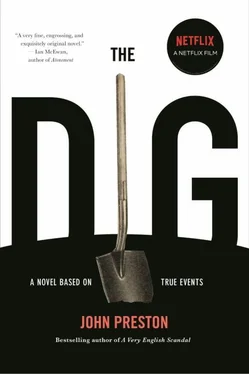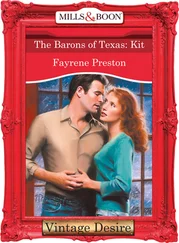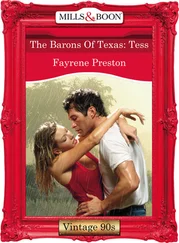Soon I was in a part of the house that was scarcely ever used. Even when Frank was alive, we seldom came here, except on the rare occasions when we had guests. On either side, doors led off into bedrooms that no one had ever slept in — at least not in our time.
When I reached the far end of the corridor, I turned round, intending to retrace my steps. It was at that point that I heard something. A knocking sound. Quite regular, like someone marking out time with a baton. It was coming from the room to my left.
To my surprise, the door was ajar. Coming the other way, I had not noticed it. But now I could see a narrow gap between the door and the frame. A right-angled band of silvery light. Meanwhile, the sound continued: regular, metronomic beats, tapping away.
I pushed the door open. The room was as white as the garden outside. It might have been filled with hoar frost. The noise was louder now, much louder than I had expected. So loud that I saw the cause of it immediately. For some reason, the window was open and the wooden end of the curtain cord was swinging about, banging against the wall.
Crossing the room, I closed the window. It slid shut quite easily. Only then did I notice that the bed had been made. All the other beds in all the other rooms had been left stripped — there was no reason to do otherwise. This one, though, had unmistakably been made. I could see the sheets pulled up over the pillows, as well as a square of blanket neatly folded at the foot of the bed.
I also thought that I could smell a very faint aroma; it seemed to be threaded through the air. Perfume, but with something else too. Something more medicinal, like liniment.
When I turned on the light, the brightness made my eyes shrink. But even in that first flash of illumination, I saw something else. The bed was not only made; there were two imprints there. Two figures had lain there. The outlines of their forms were clearly visible in the pillows, as well as on the contours of the sheets. Also in two small, rounded depressions on the center of the folded blanket.
Sitting down on the foot of the bed, I put my hand on the linen sheet. It was cold to the touch. On the table beside the bed were a mug and a teacup. The mug was not one I had seen before. It was made of brown earthenware with a narrow glazed silver band around the rim. There was what appeared to be the outline of a lip on the silver rim.
On the side of the mug was a picture of a man sitting astride a horse. Beneath it was a printed rhyme:
Tom Pearce, Tom Pearce, lend me your gray mare
All along, down along, out along lee
For I want to go to Widdecombe Fair
Wi’ Bill Brewer, Jan Stewer, Peter Gurney,
Peter Davy, Dan’l Widdon, ’Arry ’Awk,
Old Uncle Tom Cobbley and all,
Old Uncle Tom Cobbley and all.
In the morning I awoke in my own bed with no memory of how I had got back there. When I sat up, I saw there was even more of my hair lying on the pillow than usual. I flushed it away before Ellen came.
It is pointless pretending that my spirits lifted at the news that Mr. Reid Moir and Mr. Maynard had come to visit. I felt so tired I had been hoping to have the morning alone. However, I could hardly refuse to see them.
Mr. Reid Moir was a tailor before he became a palaeontologist. As a result, he is always immaculately turned out. Today, he was wearing a dove-gray suit with a matching tie. In his hand he held a book. Although he is a tall, well-built man, he is very light and fluent on his feet. There is a suppleness about his body generally that goes with his air of lacquered sensuality. Mr. Maynard followed him through the door, a couple of steps behind.
“Mrs. Pretty,” Reid Moir murmured. “Always a pleasure.”
I asked them to sit down. They did so, on opposite ends of the sofa. Glancing down at the carpet, I was relieved to see there was no evidence of Mr. Brown’s having been sick.
“How may I be of assistance, gentlemen?”
“It’s about Brown,” said Reid Moir.
“Yes? What about Mr. Brown?”
I thought at first they had come to inquire about his health. This, however, turned out not to be the case. “There is a project the museum is involved with over at Stanton,” Reid Moir went on. “A Roman villa. It’s a project we are hoping to complete before — should hostilities commence. Brown was working at Stanton before he came here. In fact, he did so on the understanding that he would return there once he had finished. Without wishing to beat about the bush, we rather hoped he would be back by now.”
“I had no idea Mr. Brown was here on loan,” I said.
“Not on loan, Mrs. Pretty.” Reid Moir smiled agreeably, while crossing one leg over the other. “I would hardly put it like that. But I understand that, despite everyone’s best efforts, progress here has been limited. And we felt that this might be a good moment to recall him, as it were.”
“Surely that is up to Mr. Brown? You would need to speak to him.”
“We have spoken to him,” interjected Maynard.
Reid Moir turned to Maynard. He remained staring at him until Maynard changed color, then he turned back to me.
“We did happen to have a quick word with him before we came here,” he acknowledged.
“And what did he say?”
“Brown is a very uncomplicated man,” said Reid Moir. “He sees the world in starkly black and white terms. That, of course, is one of his great virtues. His attitude is that, as you are paying his wages, his allegiance is to you.”
“But you do not see it that way, Mr. Reid Moir?”
“I too am an uncomplicated man, Mrs. Pretty — in my way. My only interest is the welfare of the museum. As I say, the excavation at Stanton is an important one. If successful, and we have, I believe, ample grounds for optimism, it might considerably increase our understanding of the entire Roman occupation of Suffolk. In the light of current events, one has to balance that against a more, you will forgive me for being frank, minor venture. One that, while fascinating in many respects, has so far failed to yield anything of significance.”
Possibly lack of sleep had made me irritable, possibly not. “Let me make sure I understand you clearly, Mr. Reid Moir,” I said. “You are suggesting that Mr. Brown should leave my employ forthwith and resume working for you at Stanton.”
“Not for me, Mrs. Pretty,” said Reid Moir with an indulgent laugh. “For the museum. Always the museum…”
“Do forgive me.”
He gave an absolving tip of the head.
“I am aware that the excavation here must strike you as a very silly, even an indulgent affair,” I said.
Reid Moir started to speak, but evidently thought better of it.
“I do hope, though, that you will be able to humor me a little,” I went on. “After all, I have been an enthusiastic and, I trust, helpful patron of the museum in the past.”
“Indeed you have, Mrs. Pretty. Indeed…”
“Perhaps, therefore, I might presume on your goodwill for a little longer.”
He remained quite still, with one stationary foot arched upwards.
“How much longer did you have in mind, Mrs. Pretty?” he asked.
Looking through the window, I saw that it had begun to rain. The rain clattered on the ivy leaves outside and kicked up little spouts of mud in the flower beds.
“I would like Mr. Brown to excavate one more mound for me. Then, when he has finished doing so, he will be free to go back to Stanton.”
“One more mound?” said Reid Moir, his voice a little less lacquered than before. “You mean, another one entirely?”
“That is correct.”
“But that could take — goodness — another three weeks. Perhaps even longer if this weather doesn’t clear. While I naturally do not want you to feel under pressure, Mrs. Pretty, I must point out that any protracted delay might jeopardize a potentially important find. The site at Stanton could well prove to be the largest Roman villa north of Felixstowe.”
Читать дальше












